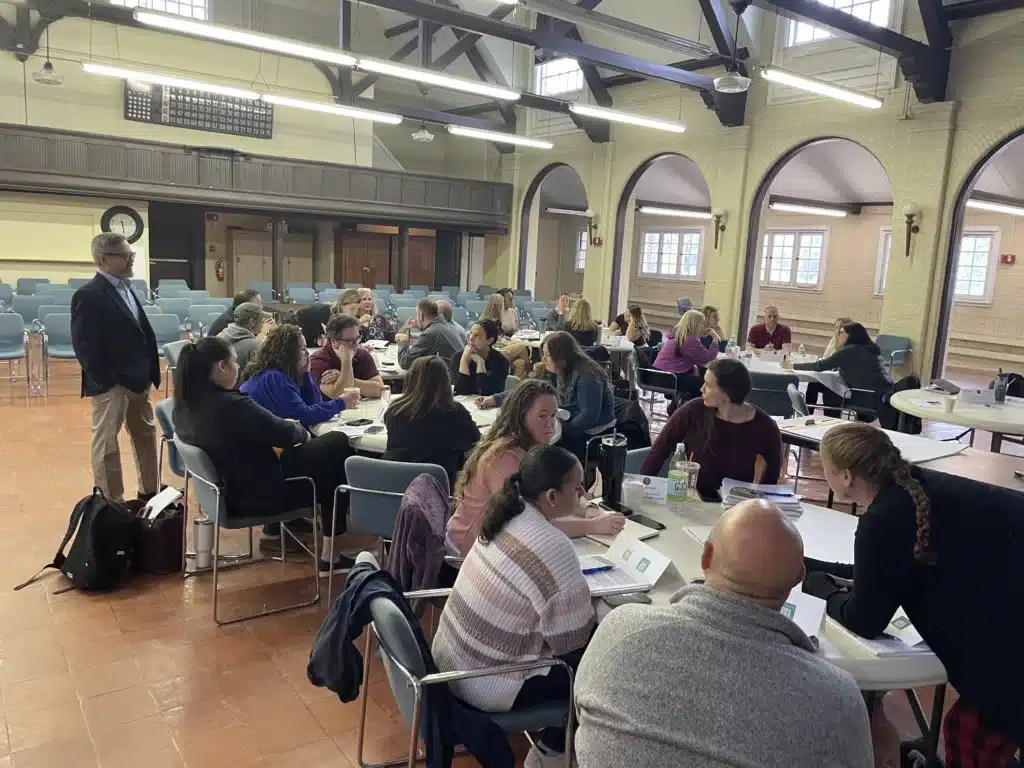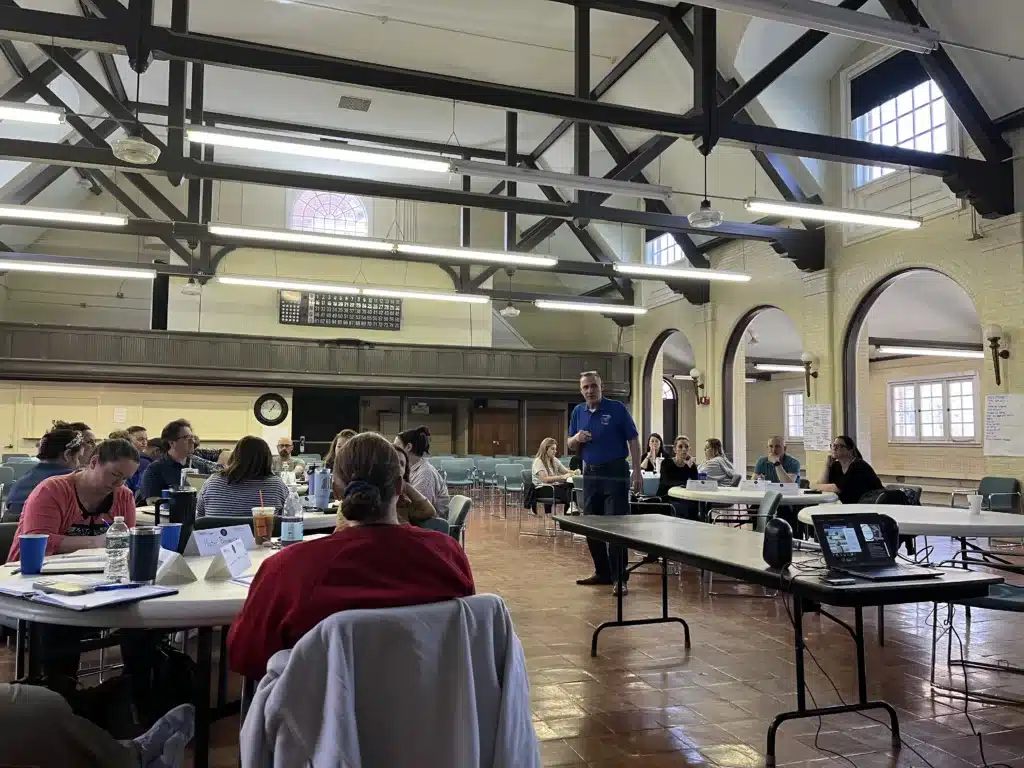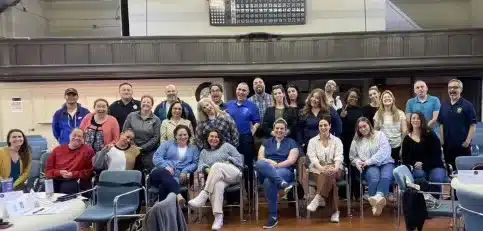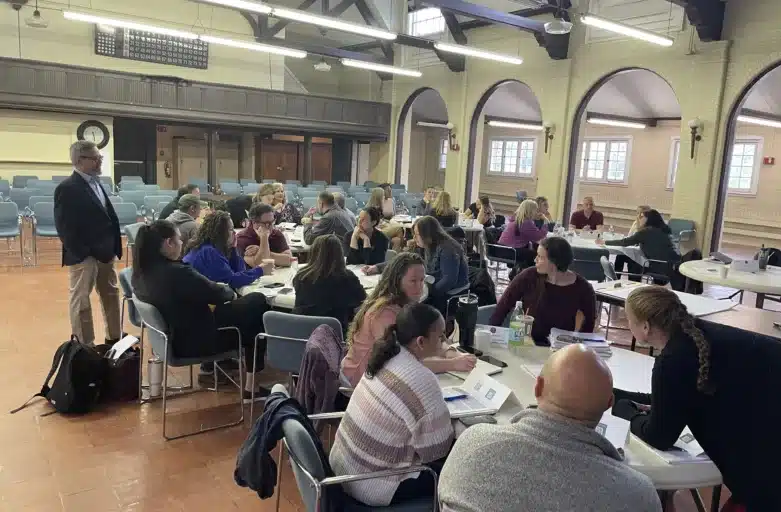


LOWELL — Operation 2 Save Lives (O2SL) and QRT National delivered a two-day Situation Training session in Lowell. The city will launch the Lowell Situation Table – a model that facilitates multi-agency interventions for those at risk of experiencing a crisis – on May 21.
The training took place from May 1-2 at the Old Chapel at Tewksbury Hospital and was delivered by Mike Botieri O2SL & QRT National and Dan Cortez. The training was funded by Vinfen Community Behavioral Health Center (CBHC) and Outpatient Services.
Twenty-eight participants attended the training, representing 13 agencies, including law enforcement, healthcare, Department of Family Services (DCF), Department of Developmental Services (DSS), Lowell Health Department, Department of Mental Health (DMH), Lowell Co-op Team, Care Coordinators, local government and more.
The City of Lowell Community Opioid Outreach Program (CO-OP) was well represented and offered excellent perspective and insight into their outreach efforts. The Lowell CO-OP is an innovative program made up of first responders and clinicians that brings together public and nonprofit organizations to address the opioid crisis in Lowell. The CO-OP is a partnership between the Lowell Fire Department, Lowell Police Department, Lowell House Recovery and Addiction Treatment, Lowell Health Department, Trinity EMS and Vinfen.
The training focused on equipping the attending agencies with the skills and lessons necessary to form a Situation Table. A Situation Table is a unique, risk-based rapid triage model that brings together multiple human service providers to address situations where individuals and/or families are facing a specific threshold of Acutely Elevated Risk. Situation Tables are comprised of representatives from public safety agencies, public health agencies, service providers and other community partners.
O2SL and QRT National would like to thank CBHC Executive Director Daniela Johnson and Public Safety Research & Planning Director Maryann Manzi of the Lowell Police Department for their scheduling efforts and their preparation for the training.
Through the model, an individual or family at Acutely Elevated Risk would be referred to the Situation Table for consideration of possible intervention before a crisis occurs. The Table participants will collaborate and discuss the identified risk factors and possible services. Upon reaching a consensus, the Table would identify a team of agencies to attempt to locate the individual or family and connect them to services.
“We had a great time in Lowell, the participants were very engaged in the training,” said Botieri. “Our hope is that the training helps participants to implement strategies into their upcoming Lowell Situation Table launch later this month.”
The HUB Situation Table model was developed in Canada by Global Network for Community Safety (Global Network), a Canadian-based firm that focuses on innovations to improve community safety and wellbeing across Canada and in the U.S. Through the O2SL & QRT National – Global Network partnership, the organizations work cross-border to collectively provide multi-agency community responses to address issues of marginalization, for pre-crisis identification and crisis interventions, while creating pathways to care and support. Their combined expertise and suite of services – based on internationally recognized best past practices – help provide communities with tailored responses to meet their current needs, and the ability to rapidly adjust to an evolving landscape of risk factors including those around substance use disorders, mental health disorders, and related social health issues.
There are over 150 Situation Tables across Canada and the U.S.
###

